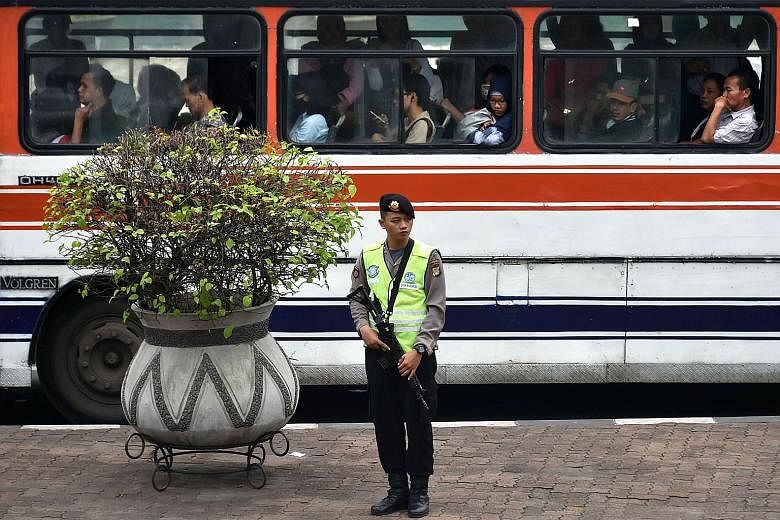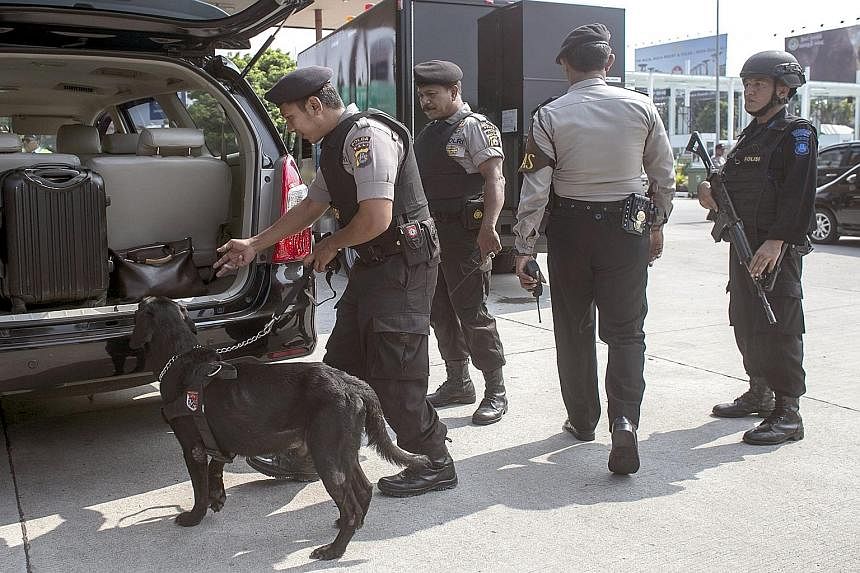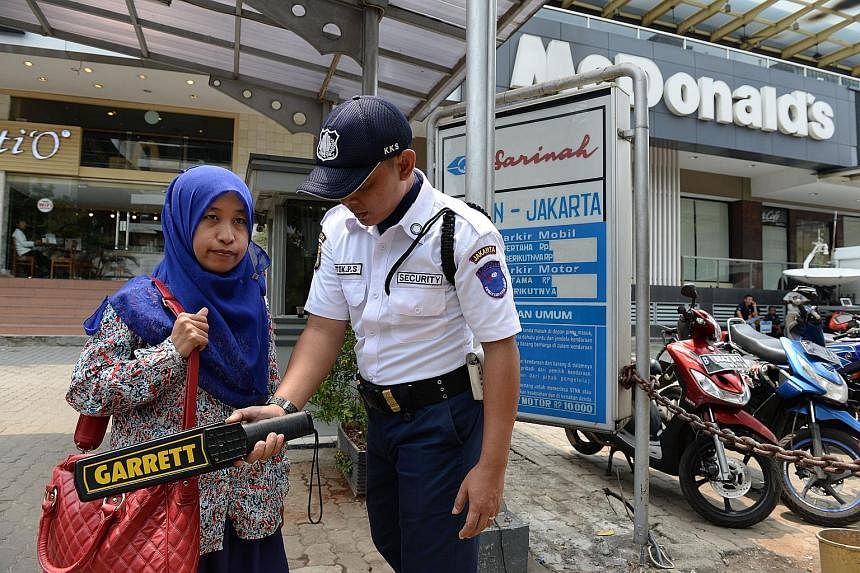The Indonesian National Police is seeking more funding to support its war on terror, following the Jan 14 attack by four local militants in Central Jakarta.
Police chief Badrodin Haiti said the additional funds will be used to upgrade weapons and train officers from its anti-terrorism unit, Detachment 88. "This is for anticipating threats from terrorists, regardless of their changing motives and modus operandi," he said on Monday night.
Detachment 88 has been leading counter-terrorism operations in the country even before the recent attack, which left eight people, including the four militants, dead.
Formed after the 2002 Bali bombings that killed 202 people, the United States-trained unit of crack commandos has been credited with dismantling extremist groups such as Jemaah Islamiah as well as other local terror networks linked to Al-Qaeda.
The elite unit has arrested at least 19 suspects in connection with the Jan 14 attack - many of whom were nabbed in covert operations to prevent others in the domestic terror networks from being alerted.
One of the suspects caught recently revealed a link between the four militants who mounted the Jan 14 strike and the East Indonesia Mujahidin (MIT) extremist group based in Poso, Central Sulawesi.
The police said the suspect, identified only by the letter R, was arrested in Bekasi, about an hour's drive from the capital. He is believed to be a logistics handler for Santoso, the leader of MIT.
Police spokesman Suharsono said investigations to establish R's exact role in the attack are continuing.
The Straits Times learnt from a source yesterday that the militants who struck at a busy intersection in Central Jakarta two weeks ago were from the West Indonesia Mujahidin.
The so-called "Jakarta Four" have been identified as Sunakim, 34, Muhammad Ali, 39, Ahmad Muhazin Saron, 25, and Dian Joni Kurniadi, 25. They had pledged allegiance to the Islamic State in Iraq and Syria (ISIS) militant group.
Malaysia's Special Branch director Mohamad Fuzi Harun said yesterday that one of the attackers had made a phone call to a Malaysian number just before the attack, Bernama news agency reported.
The information came from Indonesian police, Datuk Seri Fuzi told reporters at a deradicalisation conference in Kuala Lumpur. Malaysian police are investigating, he added.
The West Indonesia Mujahidin used to be led by Bahrumsyah, alias Abu Muhammad al-Indonesi, who has since joined ISIS as a foreign fighter in Syria.
General Badrodin told researchers at the S. Rajaratnam School of International Studies in Singapore that Bahrumsyah belongs to a pro-ISIS network of loyalist Indonesians who include Bahrun Naim, Salim Mubarak Attamimi, alias Abu Jandal, and Aman Abdurrahman.
Bahrun and Abu Jandal are believed to be fighting in Syria, while Aman is serving time in Nusakambangan prison for funding a paramilitary training camp in Aceh between 2009 and 2010. Bahrun and Aman both have ties with the Jakarta Four, with Bahrun said to be the mastermind behind the Jan 14 attack.
Santoso, the fifth man in the group, is believed to be hiding in Poso, where he is said to be behind several attacks against the police.
Thousands of police officers, including men from Detachment 88, and troops from the Indonesian military are mounting an extensive manhunt for Santoso, regarded as Indonesia's most-wanted terrorist.
Over the weekend, about 1,880 special forces troops from the navy and army were deployed to Poso to join the 2,000 policemen and soldiers already involved in the operation, code-named Tinombala.
But the police acknowledge that the jungles and mountains of Poso make it very challenging to locate the high-value target.
"Besides geographical implications, the local community sympathises with Santoso and extends support to him and his extremist group," said Gen Badrodin.



